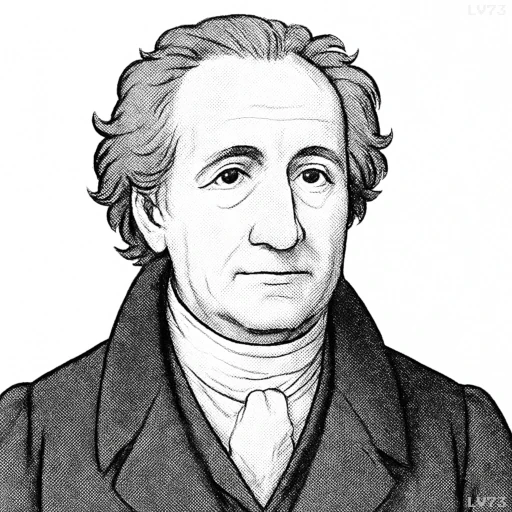“The deed is everything, the glory is naught.”

- August 28, 1749 – March 22, 1832
- German
- Poet, playwright, novelist, philosopher, politician
table of contents
Quote
“The deed is everything, the glory is naught.”
Explanation
Goethe emphasizes that the action or deed itself holds the true value, while glory, which often comes from external recognition or praise, is ultimately insignificant. The focus should be on the meaningful effort and the purpose behind what we do, rather than seeking fame or accolades for our actions. The deed reflects a person’s values, integrity, and commitment, while glory is fleeting and can often be an empty pursuit. True fulfillment comes from the act of doing—from the work itself, not from the recognition it might bring.
Historically, this idea reflects Goethe’s belief in the importance of inner worth and the integrity of action. In both the Romantic and Enlightenment eras, thinkers and artists began to focus less on external validation and more on personal authenticity and the intrinsic value of work. Goethe himself, as a writer and philosopher, often valued the moral and intellectual satisfaction that comes from creating or contributing meaningfully, regardless of the fame or praise that might result.
In modern contexts, this quote remains relevant in fields like work ethics, personal growth, and leadership. It emphasizes that the true reward of hard work, creativity, or leadership is not the recognition that might come, but the fulfillment found in the act itself. For example, someone who dedicates themselves to a cause out of genuine passion and purpose, rather than for public acclaim, finds deeper satisfaction in the work than in any external rewards.
Goethe’s words remind us that the meaning and integrity of our actions are far more important than any temporary recognition or glory we might receive. True fulfillment comes from the act itself, grounded in purpose and authenticity, not in the pursuit of outward recognition.
Would you like to share your impressions or related stories about this quote in the comments section?



